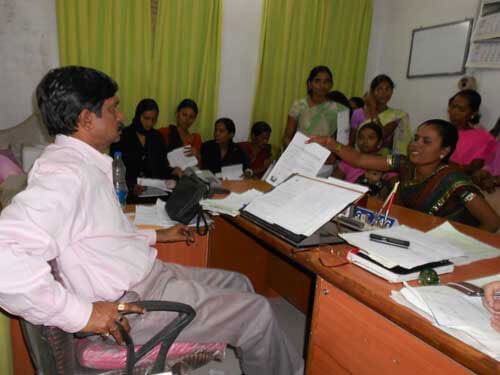The enactment of the 73rd and 74th constitution amendment has reaffirmed our faith in the institutions of local governance in urban and rural areas.
TAAL as an organization has chosen to work for the strengthening of these institutions in all its work.The work in Governance includes:
- Training of Elected Representatives in the provisions of 73rd and 74th Amendment of Constitutions, The Panchayat Act and the Acts for urban local bodies
- Handholding the Elected Representatives in performing their roles and undertaking responsibility.
- Handholding the Community in accessing the entitlements
- Undertaking Studies
Water Governance – A case Study of Tawa supported by Society of Promotion of wasteland Development
Impact Study of 74th Constitutional Amendment in Madhya Pradesh in 42 urban local bodies supported by RCVP Noronha Academy of Administration
Study of Financial Systems of Berasia Nagar Panchayat self supported by Taal
Water Governance: Case Study of Tawa Irrigation System by TAAL offers an insight into the dynamics of water management in a large irrigation system. The study relies more on exploratory methodology based on discussions with different stakeholders identifying and articulating the issue. It is thus an exploration within the overall legal framework within which the water governance related to irrigation in the state is carried out viz. Madhya Pradesh Irrigation Act, 1931 and the Madhya Pradesh Sinchai Prabandhan Me Krishakon Ki Bhagidari Adhiniyam, 1999 (referred to as the PIM Act). In addition, the Madhya Pradesh Works Department Manual (Vol I and II), 1983 and the Technical Circulars for Irrigation Works issued from time to time constitute the).

The basic concepts of the water governance in relation to the Tawa irrigation system in Madhya Pradesh are summarised in this document, and a review of the performance of irrigation institutions is presented. Argument is made that there is wide recognition of the need to improve the performance water management in particular, and that heavy government involvement at the farm level, and bureaucratic interference, have been instrumental in the demise of effective institutional mechanisms in irrigation, and clearly, new thinking and practices are needed, particularly to develop institutions that are structurally suited for water management and protection at the local level.
The document goes on to say that because of inadequate maintenance over the years, many canal systems like Tawa in Madhya Pradesh have deteriorated, adversely affecting their capability to deliver service as per design. Some systems are old and are in need of rehabilitation, improvement and modernisation, taking into account the changes in cropping pattern and agricultural practices. By basing its argument on quantitative and qualitative analysis of aspects like Institutional Issues (Functioning of WUA), Distributory and Project Committees, Farmer’s Management Committee, Budgeting Water Distribution, etc. The document focuses on documenting the water distribution system and the issues the issues of governance that emerge from it to a satisfactory operational capability in order to convey the designed discharge in all distributaries, minors and distribution systems in a timely and equitable manner.